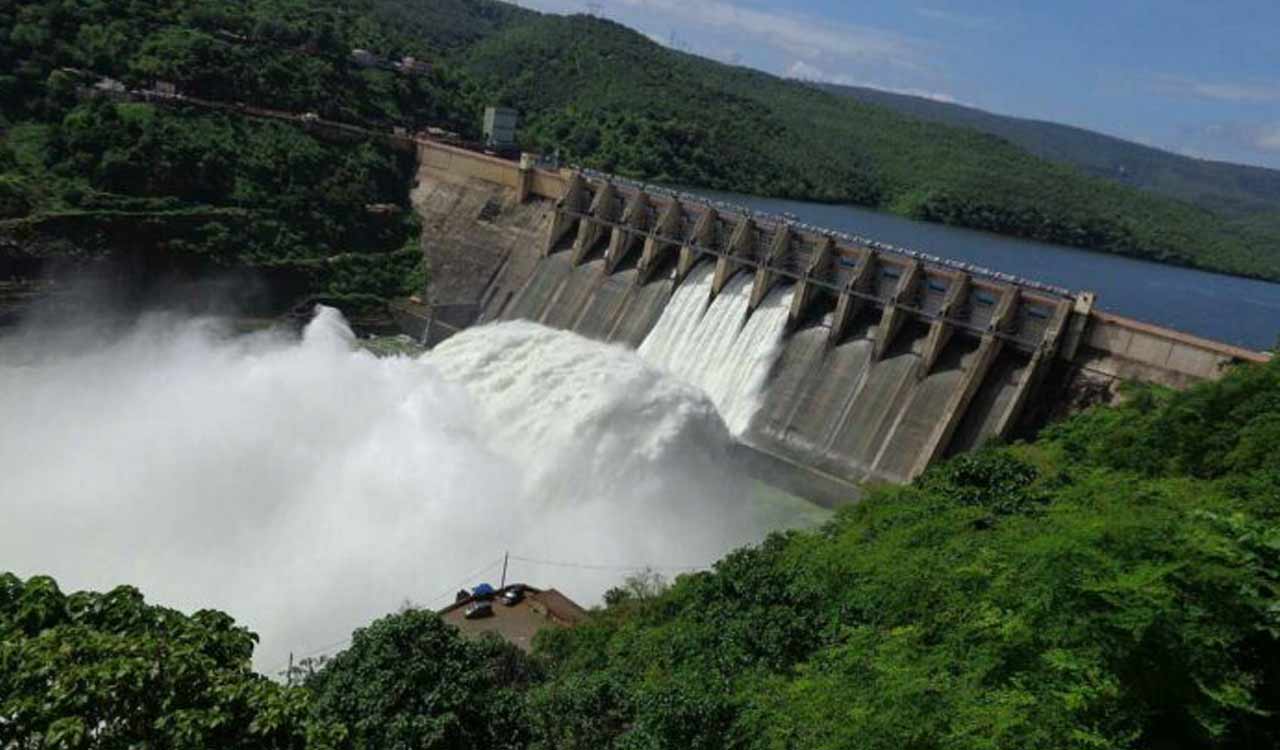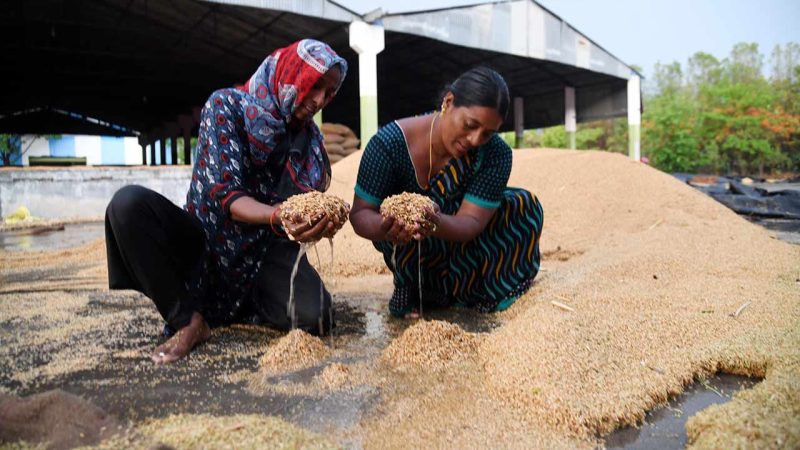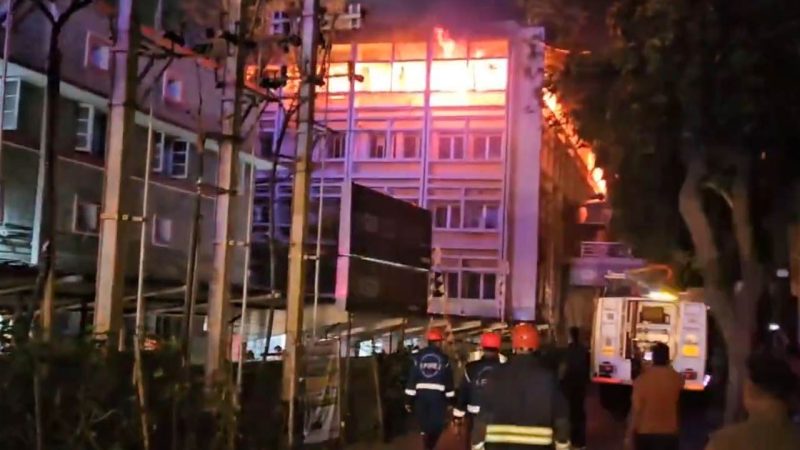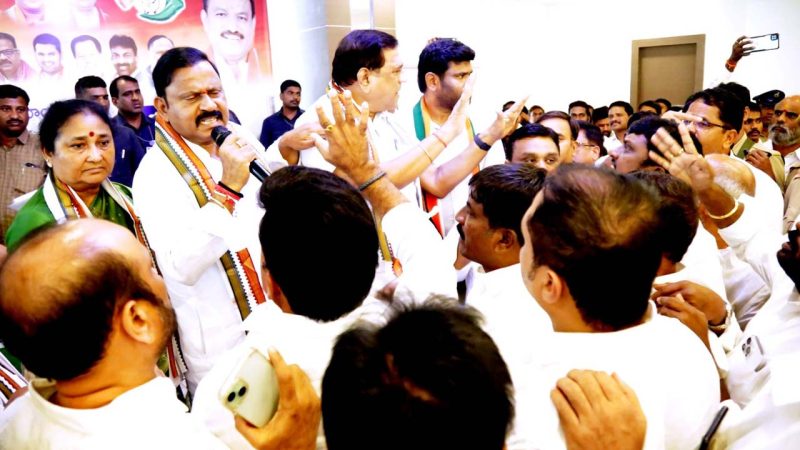Crucial meeting on May 7 on Krishna river water sharing

Meeting of Irrigation Ministers from Krishna basin States to put in place stable water-sharing framework for next two-and-half decades
Published Date – 4 May 2025, 08:58 PM

File Photo
Hyderabad: The Krishna Water Disputes Tribunal-II award, delivered way back in December 2010, has fuelled intense legal battles, rather than bringing resolution to the complex inter-State water sharing disputes.
The meeting of Irrigation Ministers from the Krishna basin States convened by the Ministry of Jal Shakti on May 7 is intended to facilitate gazette publication of the award and putting in place a stable water-sharing framework for the next two-and-half decades. But the conflict situation is unlikely to fade if the demand for an equitable share of water is not fulfilled.
Following the formation of Telangana in 2014, the Tribunal’s scope expanded in 2023 (with the issue of further terms of reference) to the water-sharing disputes between Telangana and Andhra Pradesh. A key issue is project-wise allocations from the erstwhile Andhra Pradesh’s share of 811 TMC under KWDT-I and additional allocations. The tribunal is currently deliberating on these disputes, with a revised deadline set for July 31, 2025.
Telangana’s demand for a 70 per cent share is based on basin area conflicts with Andhra Pradesh’s reliance on the existing 512:299 TMC allocation. Karnataka and Maharashtra also have stakes in protecting their shares, which could lead to a deadlock if concessions are not made.
Decades of disputes, including Telangana’s claims of neglect under the undivided Andhra Pradesh and its accusations of unauthorised water use by Andhra Pradesh have eroded trust on each other.
The KWDT-II award divided the Krishna river’s water based on a 65 per cent dependability threshold, derived from 47 years of water flow data. The allocation granted 1,001 TMC (thousand million cubic feet) to Andhra Pradesh, 911 TMC to Karnataka and 666 TMC to Maharashtra, with a total dependable yield of 2,293 TMC. The previous KWDT-I ruling allowed Andhra Pradesh to utilise surplus water without formal claims, KWDT-II assessed surplus flow at 285 TMC and redistributed it among all three States.
Almatti dam controversy
There was a shift in policy leading to objections from Andhra Pradesh, which feared a reduction in its water availability. One of the most contentious decisions in the award was the approval for Karnataka to raise the Almatti dam’s storage level from 519.6 m to 524.256 m. Andhra Pradesh challenged this, arguing that it would significantly impact water availability for its lower Krishna delta region. Protests and legal battles ensued, with Andhra Pradesh seeking intervention from the Supreme Court.
Andhra Pradesh challenged the award in the Supreme Court in 2011, particularly opposing surplus water allocations and the Almatti dam height approval. The Supreme Court issued a stay order on September 16, 2011, preventing the award’s publication in the Official Gazette. The issue continues to be sub judice, but the main agenda behind the meeting is consensus building all four States.
Environmental considerations
The tribunal mandated environmental flows of 16 TMC to be released downstream of the Prakasam barrage near Vijayawada, ensuring water reaches the Bay of Bengal to maintain ecosystem balance. Additionally, it directed the three States to contribute to Chennai’s drinking water supply, allocating 3.3 TMC from July to October and 1.7 TMC in four installments from January to April. The Ministry, going by the indications given so far, may propose to strengthen institutional mechanisms, such as the Krishna River Management Board (KRMB), to oversee water allocation and resolve disputes effectively.
The KRMB’s role could be expanded to ensure compliance with the tribunal’s award, addressing Telangana’s concerns about Andhra Pradesh’s alleged overdrawal of water.
Officials fear that the political differences between the State governments with the Congress being in rule in Karnataka and Telangana while the BJP and allies TDP are in power in Andhra Pradesh and Maharashtra, may complicate negotiations. But by and large, the meeting could help foster dialogue to end the conflict situation in river water sharing, they say.






